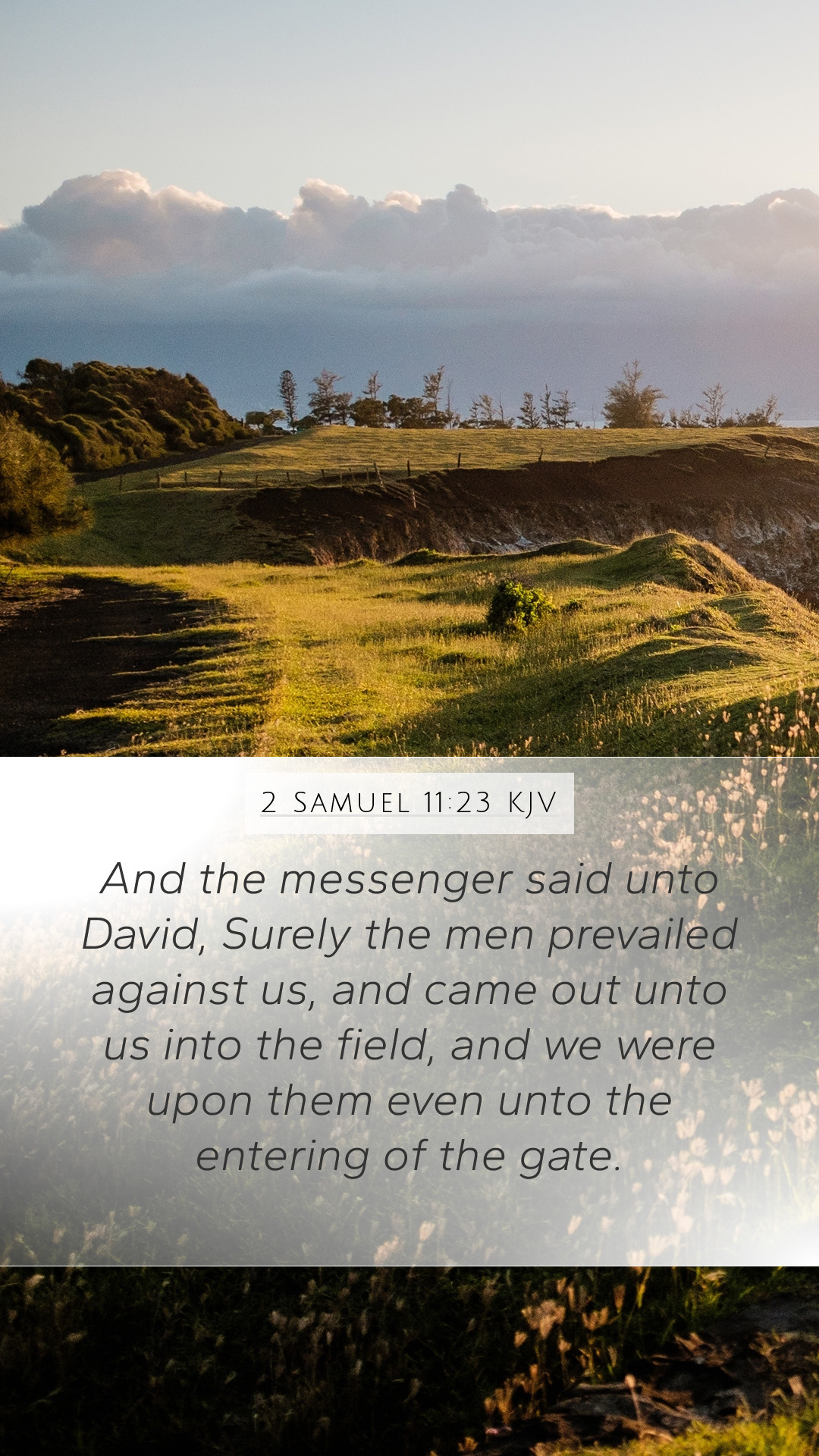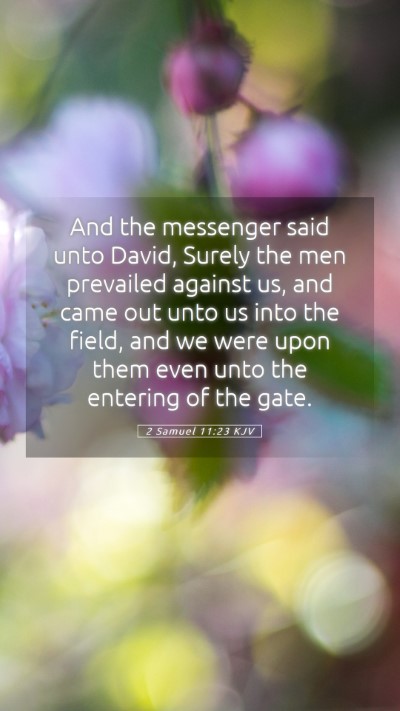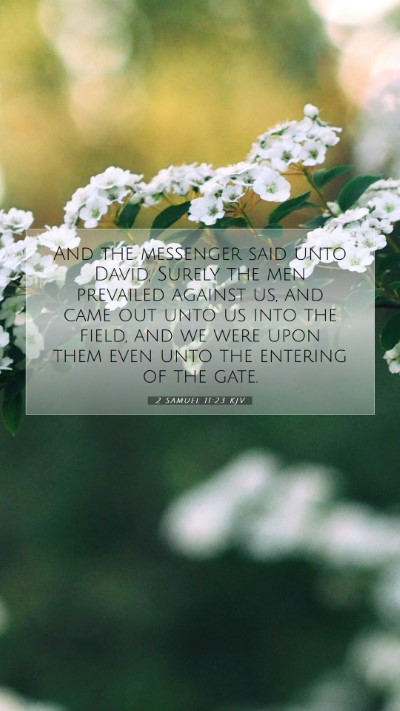Understanding 2 Samuel 11:23
In this passage, we delve into the complexities surrounding the biblical text of 2 Samuel 11:23. This verse gives us a portrayal of the implications of war and the moral dilemmas faced by its characters, particularly highlighting the sending of a report from Joab to King David regarding the battle against the Ammonites.
This verse is situated in the narrative of David's reign, illustrating not only military strategies but also the painful realities of conflict, betrayal, and the consequences of sin. Let’s explore the verse and its interpretations from various public domain commentaries, which will facilitate a deeper understanding of its meanings.
Verse Text
2 Samuel 11:23: "And the messenger said to David, 'The men prevailed against us and came out unto us in the field, and we were upon them even unto the entering of the gate.'
Contextual Background
To fully grasp 2 Samuel 11:23, it is essential to consider the historical and literary context of the passage. David was king, and this period marked a time of warfare against the Ammonites. The backdrop reveals the consequences of David's earlier decisions, which included his moral failings regarding Bathsheba and the orchestrated death of her husband, Uriah.
Analysis from Public Domain Commentaries
Matthew Henry's Commentary Insight
Matthew Henry discusses the implications of this messenger's account, emphasizing the tension and anxiety of communication in times of war. He notes that the messenger, as an instrument of news, bears both good and bad tidings, yet the overall atmosphere is laden with the fear of defeat. The significance of this report lies in its ability to convey not just physical occurrences, but also the spiritual and moral ramifications felt by David. Henry draws our attention to the messengers and their role in communicating God's providence, implying that even in the darkest circumstances, God's hand is still at work.
Albert Barnes' Commentary Interpretation
Albert Barnes offers a detailed examination of the logistics of ancient warfare as relayed in this verse. He highlights the battlefield strategies and how they reflect the broader themes of loyalty and betrayal present in the narrative. Barnes points out the tragedy of war, commenting on the loss of life and the harsh realities warriors faced. The message conveyed has deeper implications for David’s leadership and the consequences of his actions as king, reminding readers that high positions come with immense responsibility.
Adam Clarke's Commentary Breakdown
Adam Clarke provides an in-depth analysis of the messenger's declaration, underlining the emotional and psychological toll of warfare. He reflects on the physical description of the battle and the strategic movements that were made. Clarke also points out that the messenger's brief account contrasted the overarching narrative of tragedy that befalls those embroiled in David's conflict, effectively highlighting the individual's struggle against the collective experiences of a nation at war.
Significance of the Verse
The weight of 2 Samuel 11:23 extends beyond a mere historical recount; it serves as a profound teaching moment about the nature of human conflict, ethical dilemmas in leadership, and the far-reaching effects of sin. This passage captures the essence of how critical choices can reverberate through the lives of others, leading to devastation and loss. As a piece of scripture, it prompts reflection on personal responsibility and the importance of moral integrity.
Application in Daily Life
When examining the **meaning of Bible verses** like 2 Samuel 11:23, we can apply the lessons of responsibility, integrity, and the consequences of our actions to our daily lives. This verse challenges us to reflect on how our decisions might impact not only our own lives but also the lives of those around us.
Cross References
- 1 Chronicles 20:1: Provides additional context regarding David’s military campaigns.
- 2 Samuel 11:15: Highlights David's role in Uriah's death, illuminating his moral failures.
- Psalm 51: David's plea for mercy reinforces themes of sin and repentance.
Conclusion
In conclusion, 2 Samuel 11:23 encapsulates the intersection of leadership, moral choices, and the realities of human conflict. Drawing insights from various commentaries enhances our understanding and helps us to delve deeper into the **interpretation of scripture**. This verse reminds us of the moral lessons encapsulated within biblical text, encouraging us to reflect on our actions and their potential impact.


